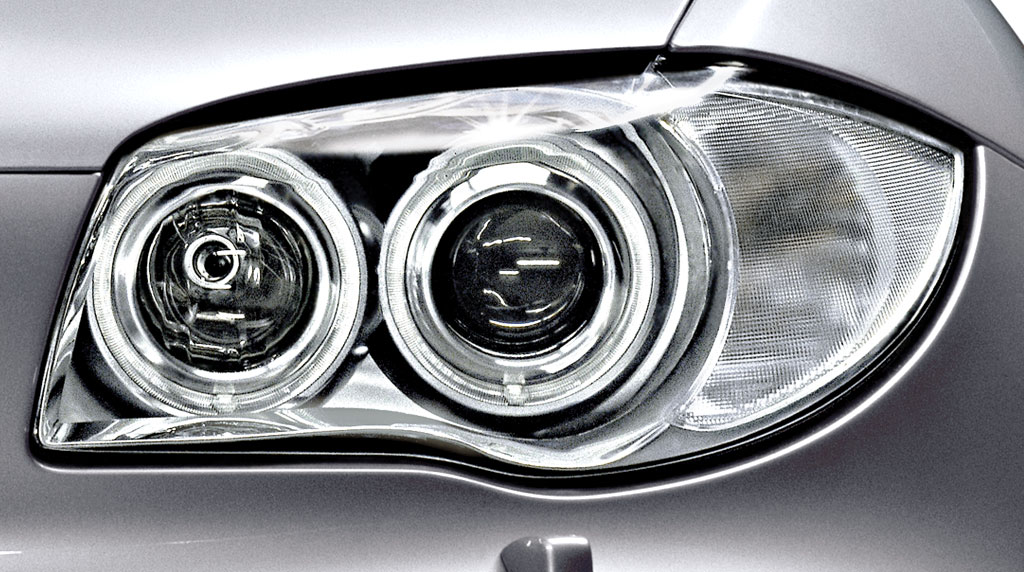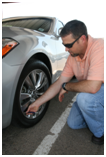Posted on 9/26/2016

What is headlight restoration? (Part 3Headlight Restoration Increases Driving Safety If your headlights are worn or cloudy, then you are taking a huge and unnecessary risk when driving at night. According to a study conducted by the AAF Foundation for Traffic Safety: · 9 out of 10 vehicles on the road have dirty or cloudy headlights, which reduces visibility. These cars need their headlights to be repaired, replaced, and restored. · Many drivers do not know that worn and cloudy headlights are not just ugly, but reduce visibility at night by over fifty percent. According to a recent study by Google and Yahoo, many accidents today are linked to dirty and cloudy headlights that offer ineffective lighting. The headlights are made using plastic, and they are significantly affected by harsh road and weather conditions. The UV rays from Mother Nature, chemicals from the engine, and smog and fumes bring some serious effects on the plastic in y ... read more
Posted on 9/20/2016

What is headlight restoration? (Part 2)Types of plastic headlight restoration The internet usually has a solution for all your problems. It will offer you very many products for DIY headlight restoration, but it is very important to do some research before spending your hard earned money. Many products available online offer to solve this problem, but they end up disappointing you. Most of the products remove the haze for several weeks, but then it comes back. Car washes and some mobile auto dealers also try to offer you headlight restoration services, but these are just short-term shortcuts. If you want your headlights to be restored correctly, we can help. Our professionals they will offer you the repair you need. A professional restoration service will completely eradicate all the scratches and yellowing on the vehicle headlights. We will do more than just a basic headlight restoration by replacing the UV filter that helps in preserving the headli ... read more
Posted on 9/19/2016
Oil ChangeWhy You Can't Just Avoid Getting an Oil Change (Part 1) If the engine is the heart of the car, then oil is its lifeblood. Both of them go hand in hand and when driving. For safety purposes, it is important to carry oil change as per the manufacturer's instructions. When the time comes for an oil change, it is critical to get the filter changed because it may harbor some contaminated oil that can harm your engine. Consider the Manufacturer's ManualWe have covered why New York City driving conditions are rated as “severe.” Severe conditions may include excessive short trips of less than five miles, loading the vehicle to maximum levels, driving on rough roads or dusty conditions, excessive idle times among a host of other reasons. The oil change recommendation may vary depending on the make of your car, th ... read more
Posted on 9/15/2016

What is headlight restoration? (Part 1)Headlight restoration Everyone wants their car running and looking perfect, but this is not always easy. Taking care of the small things in your car before they get out of hand is a good way of maintaining your vehicle. Essential things like washing the car, cleaning the interior, changing the oil and keeping up with the regular maintenance can ensure that the car remains in good shape always. When washing your car, do you notice how the headlights look? Many vehicles have cloudy, hazy, discolored, and scratched headlights. This is very common, even with newer vehicles. Many people don't bother to wash and wax these parts because they never look good after all the effort. After using your car for a while, the headlights become cloudy, and this can result in a significant loss of visibility at night. If the headlights become dull, yellow, or even hazy, you may be endangering your life and those of your passengers ... read more
Posted on 9/13/2016

Pros and cons of using Nitrogen to inflate your tires (Part 3) This is part 3 of our series on using Nitrogen to inflate your tires. · Click here for part one. · Click here for part two. Drawbacks you can expect when using nitrogen inflation. 1. Regardless of its ability to stay put within the tire, nitrogen is still a gas and eventually you will need to restore the pressure of your tires by topping them off. When this happens, nitrogen can only be topped off by nitrogen. The alternative, which is filling it up using compressed air, is a slow and tedious affair that involves deflating the tire completely before re-inflating it using compressed air. 2. To fill your tires with nitrogen, you will need to dig deeper into your pockets. It might save you money at the pump due to the ... read more